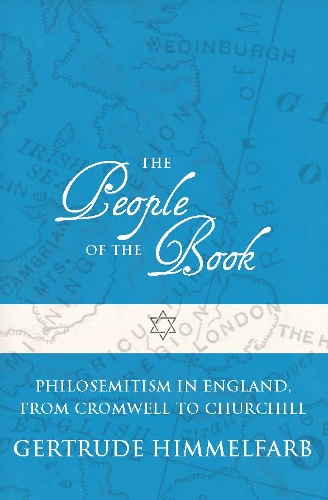
The People of the Book: Philosemitism in England, From Cromwell to Churchill
(Hardback)
Publishing Details
The People of the Book: Philosemitism in England, From Cromwell to Churchill
By (Author) Gertrude Himmelfarb
Encounter Books,USA
Encounter Books,USA
24th November 2011
United States
Classifications
General
Non Fiction
Social groups: religious groups and communities
942.004924
Physical Properties
Hardback
183
Width 152mm, Height 228mm
425g
Description
The history of Judaism has for too long been dominated by the theme of antisemitism, reducing Judaism to the recurrent saga of persecution and the struggle for survival. The history of philosemitism provides a corrective to that abysmal view, a reminder of the venerable religion and people that have been an inspiration for non-Jews as well as Jews.
There is a poetic justice or historic justice in the fact that England, the first country to expel the Jews in medieval times, has produced the richest literature of philosemitism in modern times.
From Cromwell supporting the readmission of the Jews in the 17th century, to Macaulay arguing for the admission of Jews as Members of Parliament in the 19th century, to Churchill urging the recognition of the state of Israel in the 20th, some of England's most eminent writers and statesmen have paid tribute to Jews and Judaism. Their speeches and writing are powerfully resonant today. As are novels by Walter Scott, Disraeli, and George Eliot, which anticipate Zionism well before the emergence of that movement and look forward to the state of Israel, not as a refuge for the persecuted, but as a "homeland" rooted in Jewish history.
A recent history of antisemitism in England regretfully observes that English philosemitism is "a past glory." This book may recall England and not only England to that past glory and inspire other countries to emulate it. It may also reaffirm Jews in their own faith and aspirations.
Author Bio
Gertrude Himmelfarb, professor emeritus at the Graduate School of the City University, has written extensively on intellectual and cultural history with a focus on Victorian England. Her most recent books are The Jewish Odyssey of George Eliot, The Moral Imagination: From Edmund Burke to Lionel Trilling, and The Roads to Modernity: The British, French, and American Enlightenments. She is a Fellow of the British Academy and of the American Academy of Arts and Sciences. In 2004 she received the National Humanities Medal awarded by the President.
